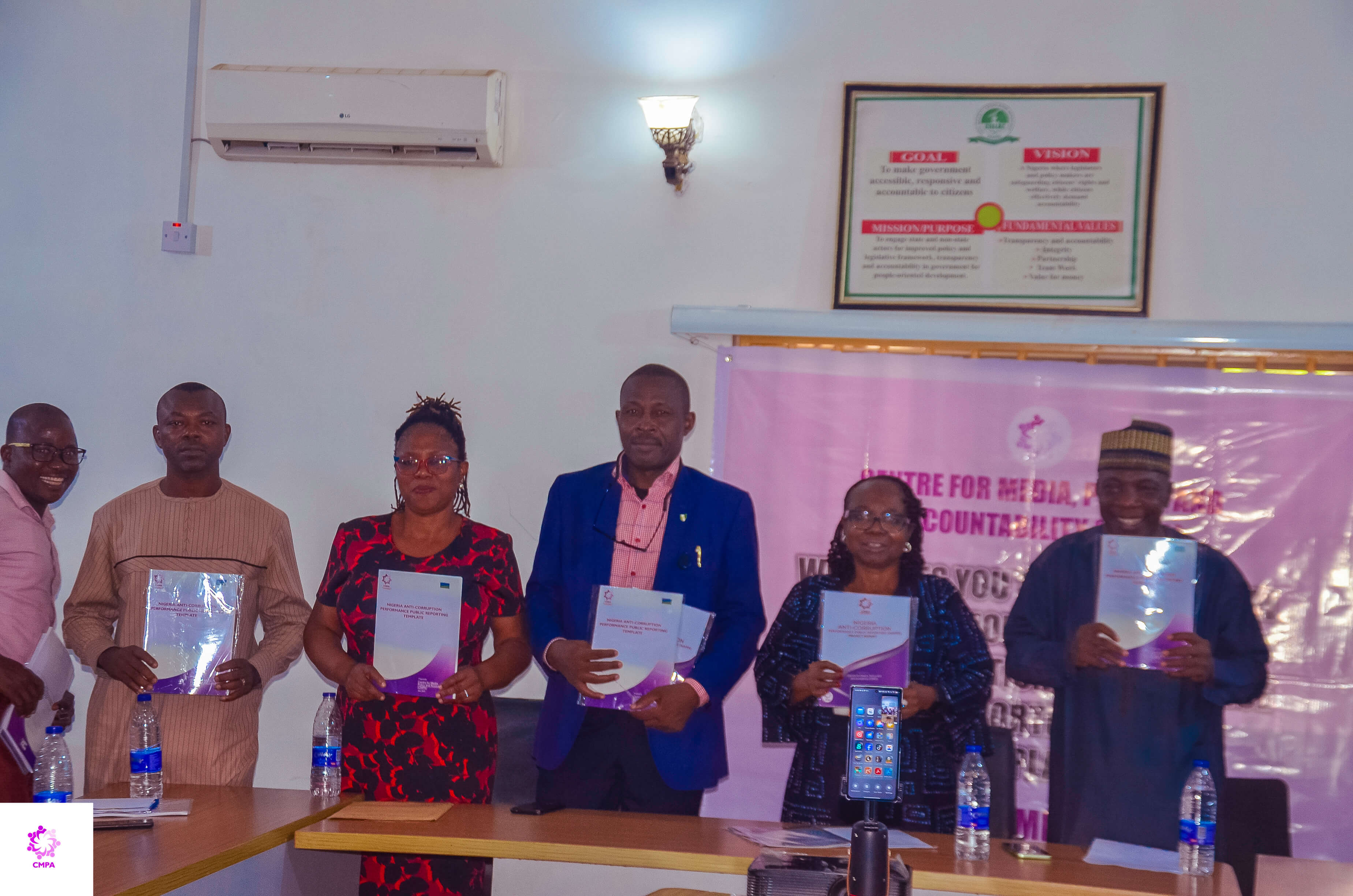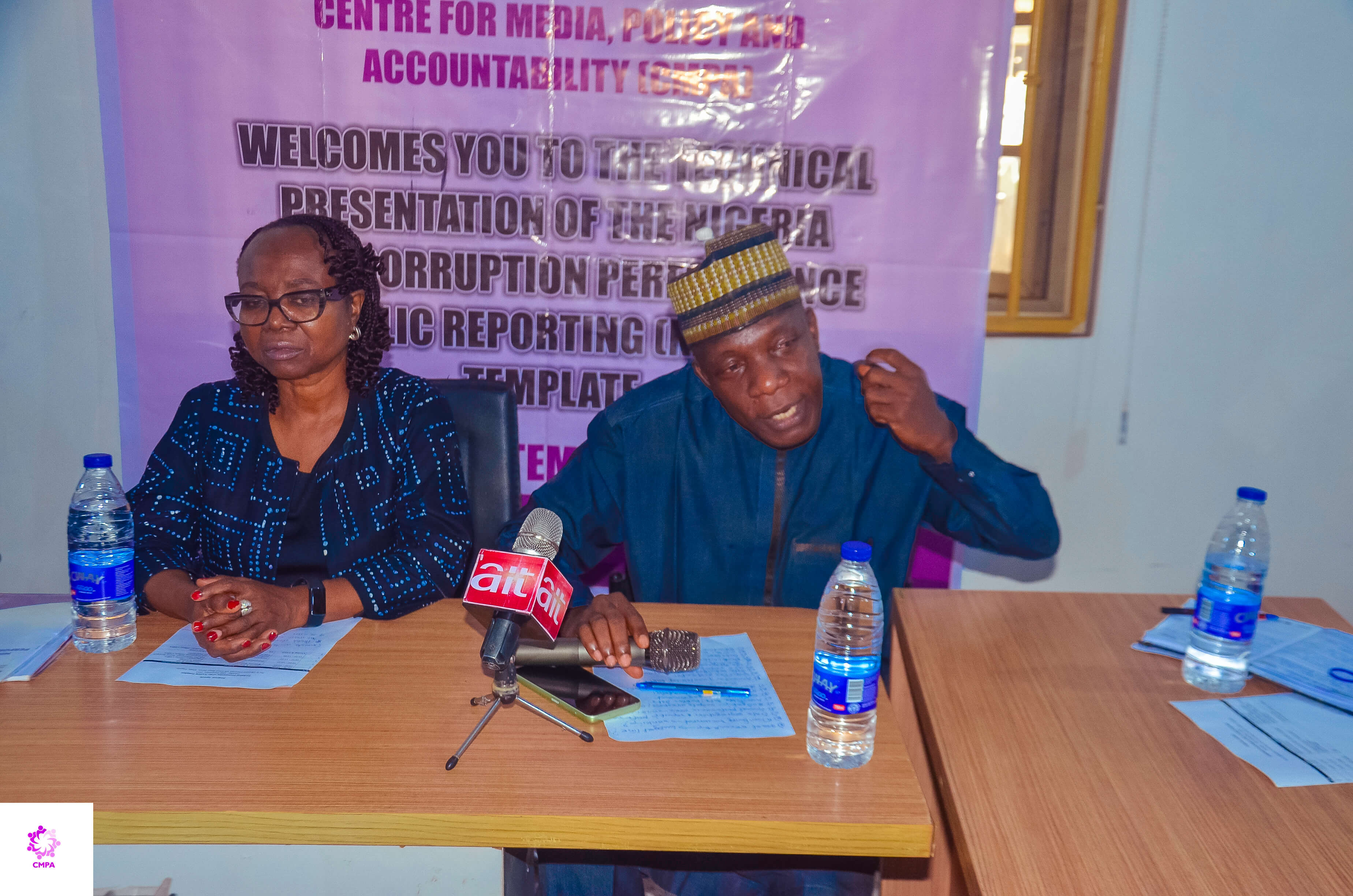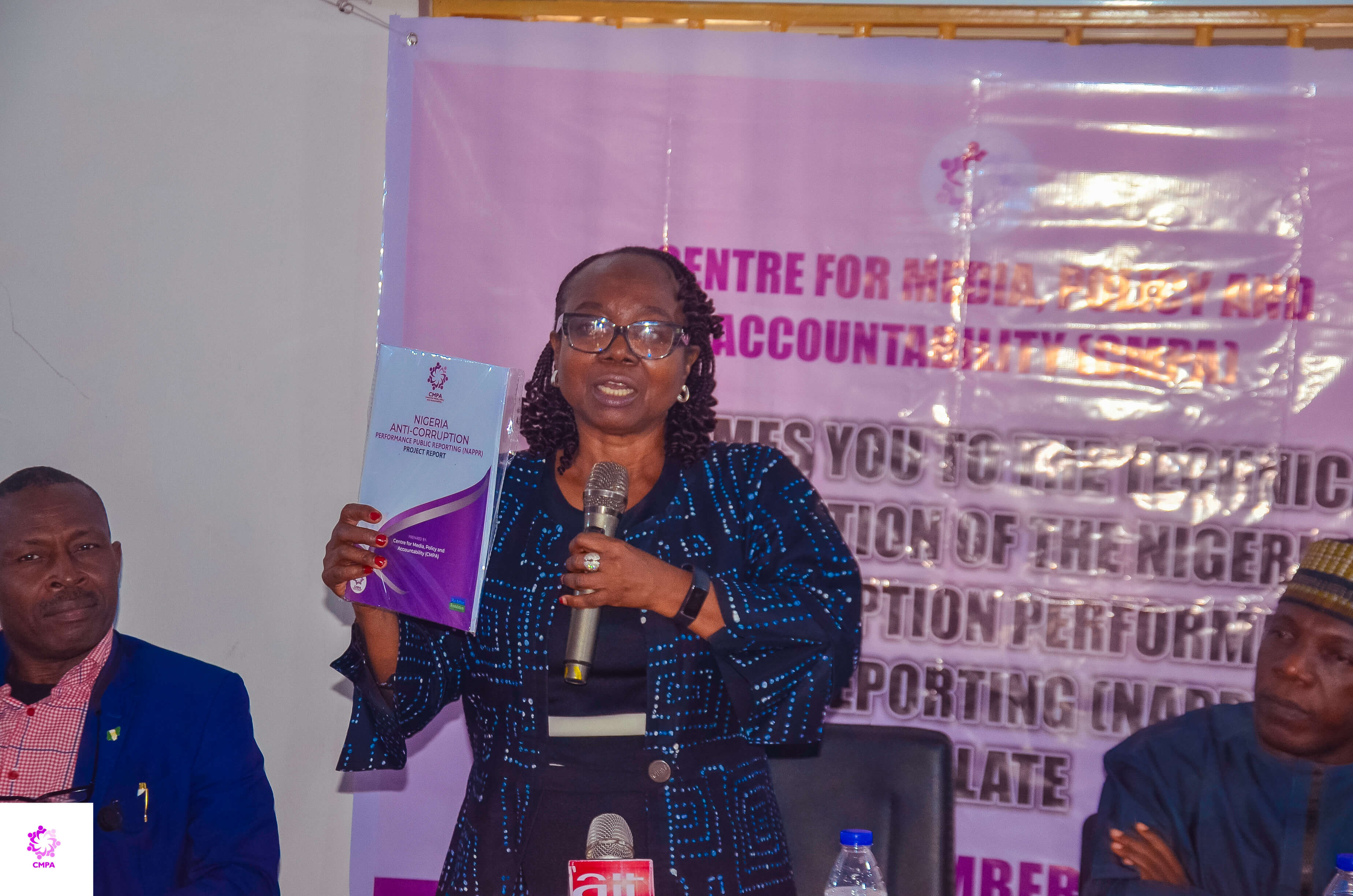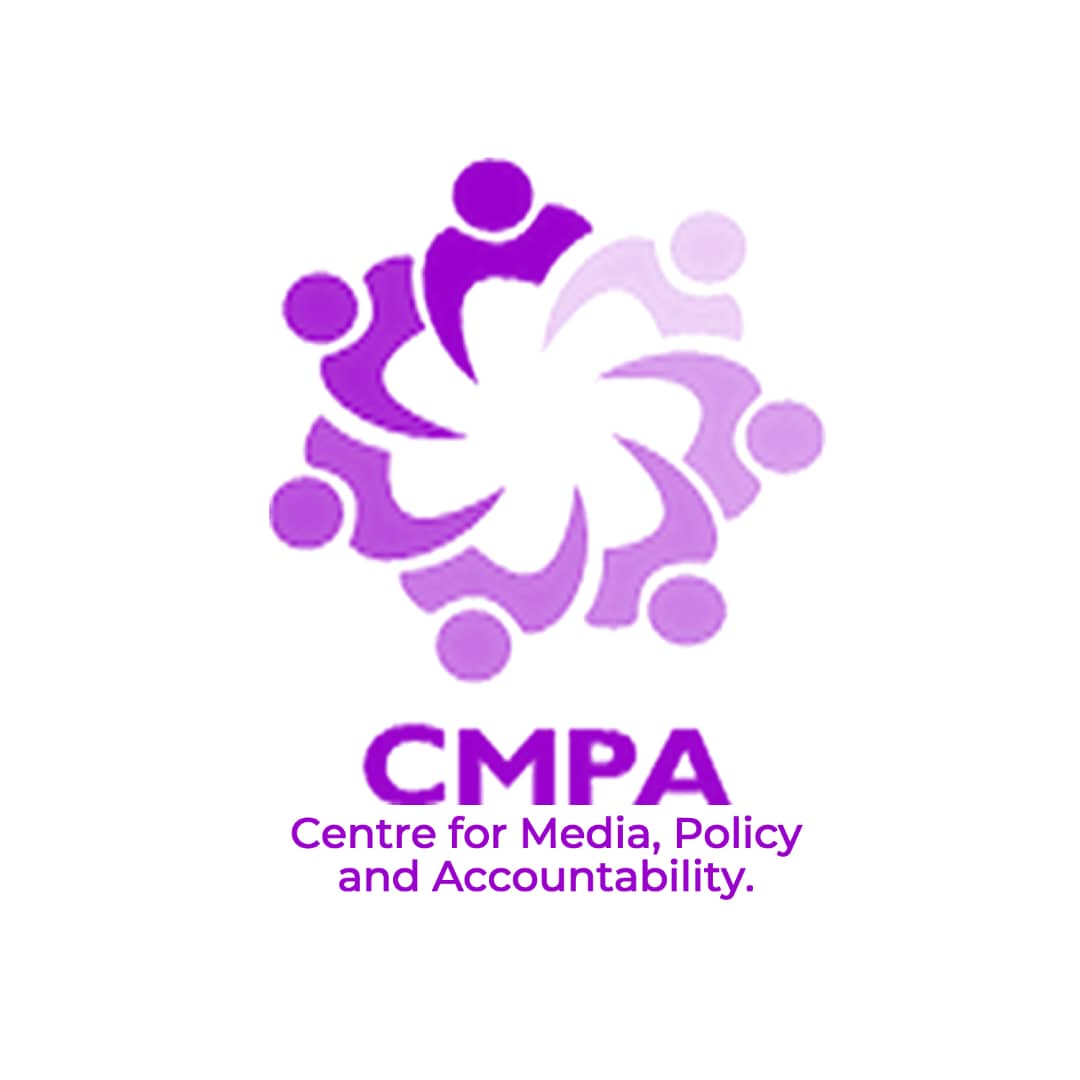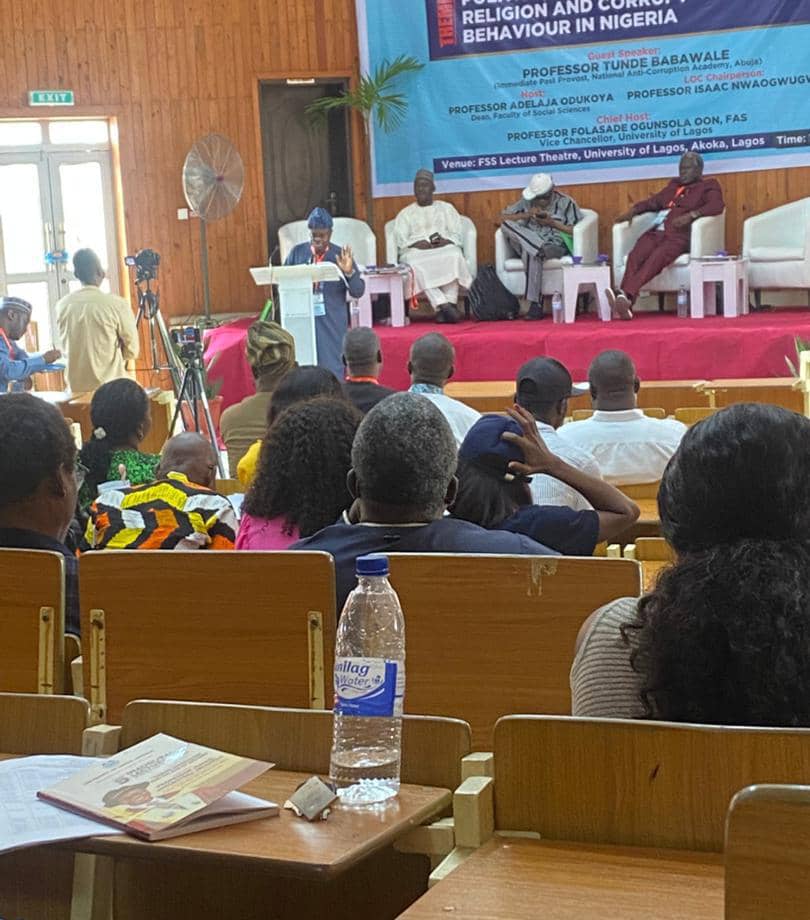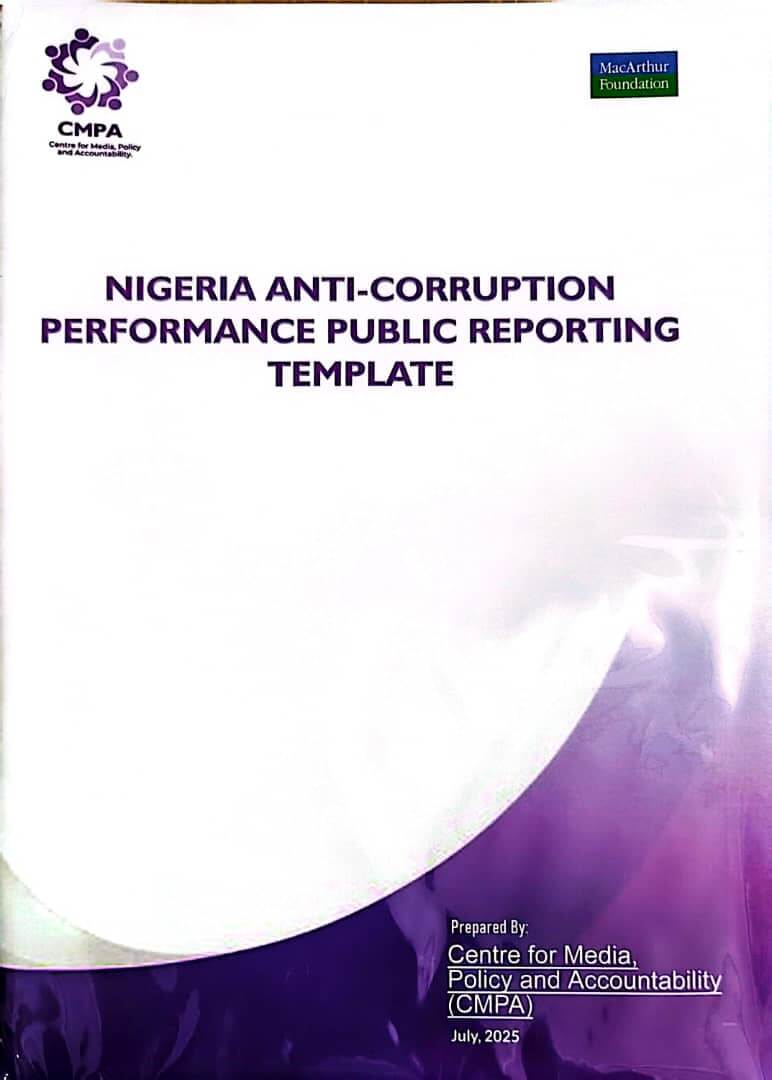
First of Its Kind: CMPA Presents Harmonized Template For Anti=corruption Agencies
On 16th Sept 2025, the Centre for Media, Policy and Accountability (CMPA) hosted Anti-corruption stakeholders […]
Post Author:
Liman Abdullahi
Categories:
Date Posted:
September 26, 2025
Share This:
On 16th Sept 2025, the Centre for Media, Policy and Accountability (CMPA) hosted Anti-corruption stakeholders to witness the end of the Nigeria Anti-Corruption Performance Public Reporting (NAPPR) project and the launch of the first harmonized reporting Template for Anti-corruption Agencies otherwise known as the NAPPR Template.
The event marked not just the conclusion of a project, but the beginning of a new chapter in Nigeria’s fight against corruption, one rooted in transparency, collaboration, and measurable impact. The NAPPR Template is more than a document; it is a tool for transformation, a framework for accountability, and a symbol of what we can achieve when institutions, civil society, media, and citizens work together.
Presenting the report, Mr. Isah Ibn-Mohammed, a Senior Program officer and Research Fellow at CMPA noted the actual essence of the NAPPR Project was basically to enhance the public reporting of anti-corruption performance especially by Nigeria’s major anti-corruption agencies (ACAs) i.e. The Independent corrupt Practices and other related offences commission (ICPC), Economic and Financial Crimes Commission (EFCC) and the Code of Conduct Bureau (CCB). The findings revealed that while significant numbers of cases were processed, most convictions focused on lower-level offences while high-profile political cases stalled.
He said, “We recommend an annual Anti-Corruption Performance Review and Policy Dialogue. Such an event will bring together all anti-corruption agencies, relevant government officials and institutions, civil society organizations, media, and other technical partners to discuss, deliberate and share ideas on anti-corruption policy, implementation and performance on annual basis.”
Similarly, the Executive Director CMPA, Dr. Suleiman A. Suleiman called on Anti-corruption agencies to disaggregate data in their reports, he made the call while responding to comments and questions, “The NAPPR template recommends that data is clearly broken down into cases such as cybercrime, systemic fraud, procurement corruption, and grand corruption by politically exposed persons (PEPs) like governors, ministers and others alike, by separating minor infractions from major systemic infractions, the template encourages agencies to show exactly where they are making progress, and where challenges remain.”
“The public, and international partners, want to know how many of these convictions involved PEPs? How many were systemic corruption? and, or how many were low-level corruption like the popular yahoo-yahoo scams?”, Suleiman added.
The presentation saw representatives from major anti-corruption agencies, civil society organizations, technical partners and the media, most notably the Economic and Financial Crimes Commission (EFCC), Independent Corrupt Practices and Other Related Offences Commission (ICPC), Code of Conduct Bureau (CCB), Nigeria Police Force, Federal Ministry of Justice, Centre for social Justice, Technical Unit on Governance and Anti-corruption Reforms, Daily trust Foundation to mention a few.
In her remarks, the former Head of the Technical Unit on Governance and Anti-corruption Reforms (TUGAR), Mrs. Lillian Ekeanyawu said, despite the best efforts of Anti-corruption agencies to put information of their efforts out there, there was still a gap in the way the information was put out and the frequency of dissemination, consequently they are rated lower than their performance. She mentioned this as one of the problems CMPA sought to tackle in the course of the project and developing the template which is to engage public reporting in a more inclusive and proactive manner.
She also noted that the media reports are mostly sensational, she said, “for instance, there’s No doubt Nigeria is a country of endemic corruption, but there is an aspect where Nigeria is taking the lead which is in recovery and management of assets. At the global level Nigeria is number one in terms of assets recovered and retuned to the country with the Philippines following in far distance behind, if this is actually reported the way it should, what the civil society and other stakeholders should be engaged in is to find out, ask questions and engage, how returned assets are being used? and, even the ones recovered at the domestic level”
Speaking further on the template, she urged the CMPA research team to take the document a step further beyond problem identification and translate it into a monitoring document where it can be used to assess and rank anti-corruption agencies year after year, she concluded.
While giving the vote of thanks the communication officer, Liman Abdullahi commended the MacAthur foundation whose support made the project a reality, he also commended individual and institutional partners from anti-corruption agencies, civil society organizations and the media for their time, insights and unwavering support through the journey of producing the template, “We are proud of the journey we’ve taken from research and advocacy to capacity building and knowledge sharing and we are even more proud of the community that has rallied around this vision. Your presence here affirms that the commitment to integrity and good governance is alive and growing”, He said.
As we move forward, we encourage all stakeholders to adopt, promote, and sustain the principles embedded in this template. Let it be a living document, one that evolves, inspires, and continues to serve the public good. Together, we can build a more transparent and accountable Nigeria.
Sign up to our Newsletter
(We do not share your data with anybody, and only use it for its intended purpose)

